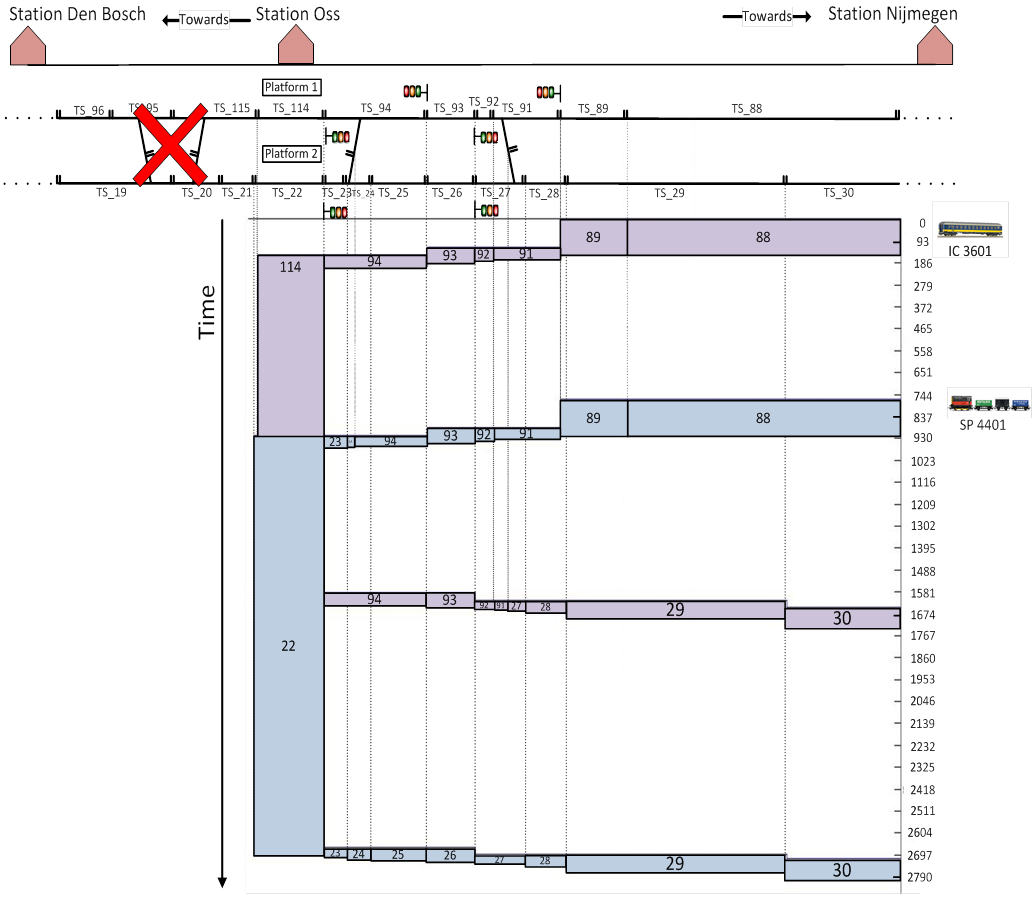SmartOCCR - Disruption Decision Support for Railway Operation Control Centres
Subject
The handling of railway disruptions in case of partial or complete blockages needs to be improved as currently it is a time-consuming task without computer support of which the outcome depends highly on the experience of the traffic controllers. Static pre-defined contingency plans provide adjustments to the timetable (called a disruption timetable) for scenarios of unavailable infrastructure. In these contingency plans the cancelled, short-turned, and rerouted train services are described. However, these plans are not tested on feasibility and usually do not completely fit to the actual disruption situation so that they often need modifications. Moreover, they do not provide any instructions on the transitions between the original and the disruption timetable.
Scientific challenges
The scientific challenge is to develop methods and algorithms to compute conflict-free schedules and routes through stations for disrupted traffic situations where the remaining infrastructure capacity is used as best as possible and the disturbance for passengers is as small as possible. The algorithms must be applicable in real-time and the results must be robust to the uncertain conditions during disruptions.

Societal relevance
Currently railway traffic controllers are faced with a high workload to reach an agreement about a suitable disruption timetable. The process of making a good decision takes long and hampers the traffic further. Supporting traffic controllers in their decision process will improve the response time and quality of the disruption solution at less stress

Nadjla GhaemiStart/end date: 1st February,2013-February, 2017Daily supervisor: Rob Goverde Promotor: Serge Hoogendoorn |